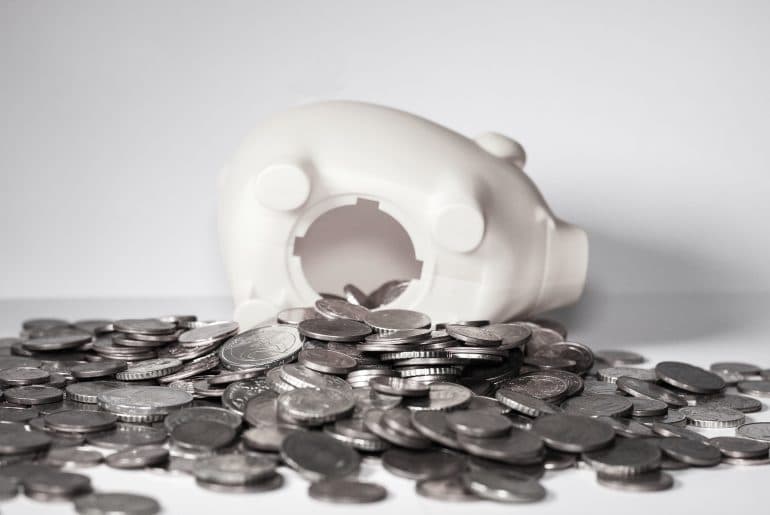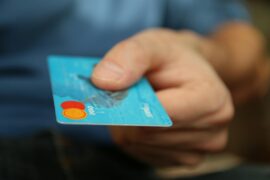This article may contain references to products or services from one or more of our advertisers or partners. We may receive compensation when you click on links to those products or services. Nonetheless, our opinions are our own.

Updated by Albert Fang
As much as I hate to admit it, saving money can be a very hard topic to crack depending on the individual. Measuring success for budgeting and saving money can look very different because living a frugal lifestyle relies heavily upon the individual to adopt an unrealistic good set of habits from cold turkey sometimes. My only advice is to approach it with an open mind.
Unless you grew up in a household that has already adopted a savers mentality, chances are you already adopted razor-thin frugal living standards are probably slim, which is good news actually. In other words, this means there is definitely room for improvement and you can probably start saving money right away.
But how do you measure success when it comes to saving money and budgeting during the longevity of your budgeting plan? That will depend on your self-discipline and mental fortitude alone, almost like a commitment of sticking to a fitness or diet regimen.
- Budgeting should be predictable and make you feel financially secure 100%
- Saving money on expenses is a lifestyle where being organized is key
- Be realistic with your spending habits and cut down at your own pace
- Every penny saved is a penny earned
- Adopt a minimalist approach to shopping
- Use cash instead of credit cards if you must to hold yourself accountable
- Use time to your advantage and be patient to save money
- Recommended Reads
Budgeting should be predictable and make you feel financially secure 100%
Budgeting comes down to planning and is predictable when done right. The whole point of budgeting is to adopt a savers mentality in a more predictable and forecastable fashion. This enables you to be more alert and aware of your financial well being and ultimately, financially independent so you can sleep comfortably at night with a roof over your head.
The point of budgeting is to account for worse case scenarios and having a Plan B when god forbid an emergency happens like the coronavirus pandemic.
Saving money on expenses is a lifestyle where being organized is key
The best way to stick with a budgeting plan is to always be organized and not succumb to external pressures with your spending even around your peers.
Budgeting is all about being ruthless and decisive with your inaction to go over your spending limit. The feeling of security and decisiveness of already knowing how much you are going to spend before you step out in an anti-consumerism society should alone give yourself some satisfaction and self-praise. I recommend checking out budgeting software that accounts for your everyday spendings like Mint or YNAB.
Be realistic with your spending habits and cut down at your own pace
Definitely treat yourself every now and then so you don’t splurge, but at the same time be realistic where your efforts are going to take you. Just realize that saving money and actually sticking with your plan is like a marathon and not a sprint. Once you have accepted that it takes time to adjust and change your behavior, the quicker you will be from making risky, impulsive shopping behaviors.
Being decisive is part of living a frugal lifestyle. The quicker you plan out your spending habits, the less likely you will succumb to peer pressure during social events or compare yourself to your more well off peers so be realistic with your spending habits and cut down.
Every penny saved is a penny earned
Adopt this type of mentality of “Every penny saved is a penny earned” and over time the amount of money you saved will accumulate in ways you wouldn’t have imagined. Ever heard the saying of, “If I had a dime for every time…?”
Those pennies you see that are of little value now? They all add up over time to become something much bigger later.
Adopt a minimalist approach to shopping
Reason with yourself and hold yourself accountable if you are about to purchase, for example, brand new Nike sneakers even though your current pair of shoes aren’t worn out. Recognizing if your spending is an impulsive purchase or not will go a long way in reducing the amount of unnecessary spending you will make. Always focus on essential goods first and question yourself if you really need those brand new pair of sneakers from Nike.
Use cash instead of credit cards if you must to hold yourself accountable
For some individuals I know, the act of exchanging cash in-person actually makes the person be more rational with their money in most cases. Even if you are giving up cashback points, holding yourself accountable and limiting yourself from going overbudget is more important than a measly 1% or 2% credit card cashback. Remember, budgeting is as much as a mental battle than a financial problem. Stay strong.
Use time to your advantage and be patient to save money
If you know certain products you want in a grocery store goes on sale only on Thursdays only, be patient, and wait out grocery shopping until Thursday.
The key takeaway here is to best use your insider knowledge to best leverage additional ways to save, whether it be bringing coupons, using a 5% cashback credit card, or using a bike for transportation to reduce gas usage.
Recognize, that there are many applications to using your knowledge to save even more money. Realize, living a frugal lifestyle is a mental battle that can be won, but requires being strategic and ultimately, self-discipline. Remember, be rational with your money and just think before spending.
Budgeting and saving money are all about being realistic and conscious about your everyday spending habits.

Reviewed and edited by Albert Fang.
See a typo or want to suggest an edit/revision to the content? Use the contact us form to provide feedback.
At FangWallet, we value editorial integrity and open collaboration in curating quality content for readers to enjoy. Much appreciated for the assist.
Did you like our article and find it insightful? We encourage sharing the article link with family and friends to benefit as well - better yet, sharing on social media. Thank you for the support! 🍉
Article Title: How to Successfully Budget and Win the Mental Battle of Saving
https://fangwallet.com/2020/06/17/how-to-successfully-budget-and-win-the-mental-battle-of-saving-money/The FangWallet Promise
FangWallet is an editorially independent resource - founded on breaking down challenging financial concepts for anyone to understand since 2014. While we adhere to editorial integrity, note that this post may contain references to products from our partners.
The FangWallet promise is always to have your best interest in mind and be transparent and honest about the financial picture.
Become an Insider

Subscribe to get a free daily budget planner printable to help get your money on track!
Make passive money the right way. No spam.
Editorial Disclaimer: The editorial content on this page is not provided by any of the companies mentioned. The opinions expressed here are the author's alone.
The content of this website is for informational purposes only and does not represent investment advice, or an offer or solicitation to buy or sell any security, investment, or product. Investors are encouraged to do their own due diligence, and, if necessary, consult professional advising before making any investment decisions. Investing involves a high degree of risk, and financial losses may occur including the potential loss of principal.
Source Citation References:
+ Inspo












































